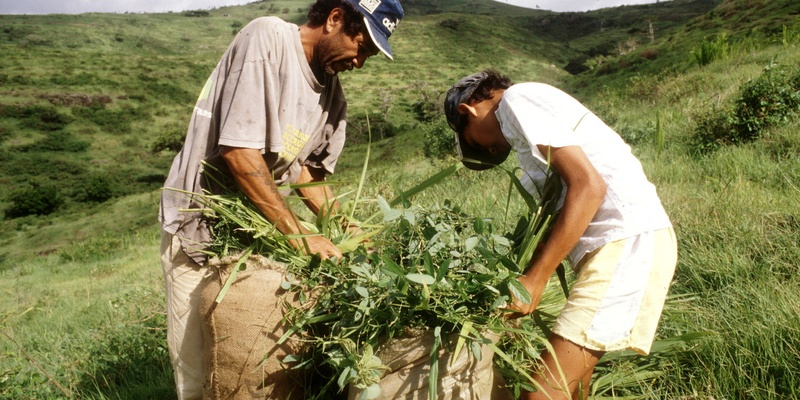Mauritius concludes evaluation of national phytosanitary system
Posted on Thu, 30 Nov 2023, 12:18

© FAO/Horst Wagner
Rome, 24 November 2023. Mauritius is an island whose agricultural production has traditionally relied on sugar cane. In recent years, Mauritius started diversifying into production and export of other products such as litchi, pineapple, and anthurium. However, given its insular geographic position, high number of tourists, and strong reliance on imports for human consumption, agriculture and trade in plants and plant products in Mauritius, are susceptible to the introduction of exotic pests. An efficient and robust phytosanitary system is essential to protect the country from the impact of pests.
To fully understand how to best protect the island’s safe trade and economy by safeguarding plant health and biodiversity, the national plant protection organization (NPPO) of Mauritius, through the Mauritius Ministry of Agro Industry and Food Security, in collaboration with the International Plant Protection Convention (IPPC) Secretariat, decided to conduct a Phytosanitary Capacity Evaluation (PCE). A PCE is a step-by-step assessment through which countries can identify the gaps in their national phytosanitary systems and plan solutions to address them.
Out of nine African countries benefiting from an IPPC-led project to strengthen phytosanitary capacity, Mauritius was the first to complete a PCE. The PCEs are part of the project, "Strengthening of Capacities and Governance in Food and Phytosanitary Control”, to support NPPOs and other institutions in the Common Market for Eastern and Southern Africa (COMESA) member states. The project started in November 2022 and is funded by the European Union. It is designed to enhance technical expertise, strengthen governance and improve strategic planning around food safety and plant health. This support will enable participating countries to fulfil international obligations and develop strategic plans to strengthen phytosanitary capacity, trade and food safety regulatory systems.
Assessment of the national phytosanitary system in Mauritius
Over three PCE consensus workshops (missions) and collaborative work in-between, the NPPO of Mauritius and stakeholders evaluated the country’s phytosanitary systems and developed a National Phytosanitary Capacity Development Strategy to improve them, over the next 5-10 years. The strategy will address the gaps and guide the country’s capacity development needs. The outcomes of the PCE can be used to mobilize resources to implement elements of this strategy.
For its evaluation, Mauritius focused on 10 of the 13 PCE modules on various phytosanitary topics. Selected modules included reviewing the national phytosanitary legislation, NPPO structure and processes, pest diagnostic capacity, pest surveillance and pest reporting capacity, phytosanitary import regulatory system, pest risk analysis and export certification. Throughout the process, IPPC-certified PCE facilitators worked closely with the NPPO and relevant stakeholders, guiding the revision and implementation of the PCE as well as developing the strategic plan to improve Mauritius’ phytosanitary system ands afeguard the island’s plant health, trade, and economic development.
Next steps
Following the last PCE mission in August, Mauritius held a closing workshop in Reduit, during which national stakeholders reviewed and validated the results of the two previous assessments. In the resulting national strategic plan, the Mauritius NPPO and its stakeholders agreed on the need to establish a Pest Risk Analysis Unit within the Mauritius NPPO. This Unit would play a crucial role in limiting the spread of biological invasions and in protecting the agricultural export flows. To carry out its objectives, the Unit will be supported by a new IT centralized system, to aid in collecting and managing phytosanitary data as well as documenting national standard operating procedures.
Speaking at the project closing workshop in Reduit, Pratimah Peerthum, Acting Principal Scientific Officer at the NPPO of Mauritius, noted that in light of a plethora of positive and negative global developments such as globalization, increased global trade, climate change, disease epidemics, and technological advancements, the project was timely. She said that the PCE is relevant for reviewing the NPPO capacity needs, empowering it to deliver quality services to stakeholders. She noted that going forward, Mauritius will be focusing on several PCE outcomes, particularly, drafting a new mission statement for the Ministry and the NPPO, amending the plant protection act, drafting capacity development manuals and procuring certain equipment.

© Sachita Jawaheer
Related information
Website: About the Phytosanitary Capacity Evaluation (PCE)
Website: About the project: Strengthening food control and phytosanitary capacities and governance

